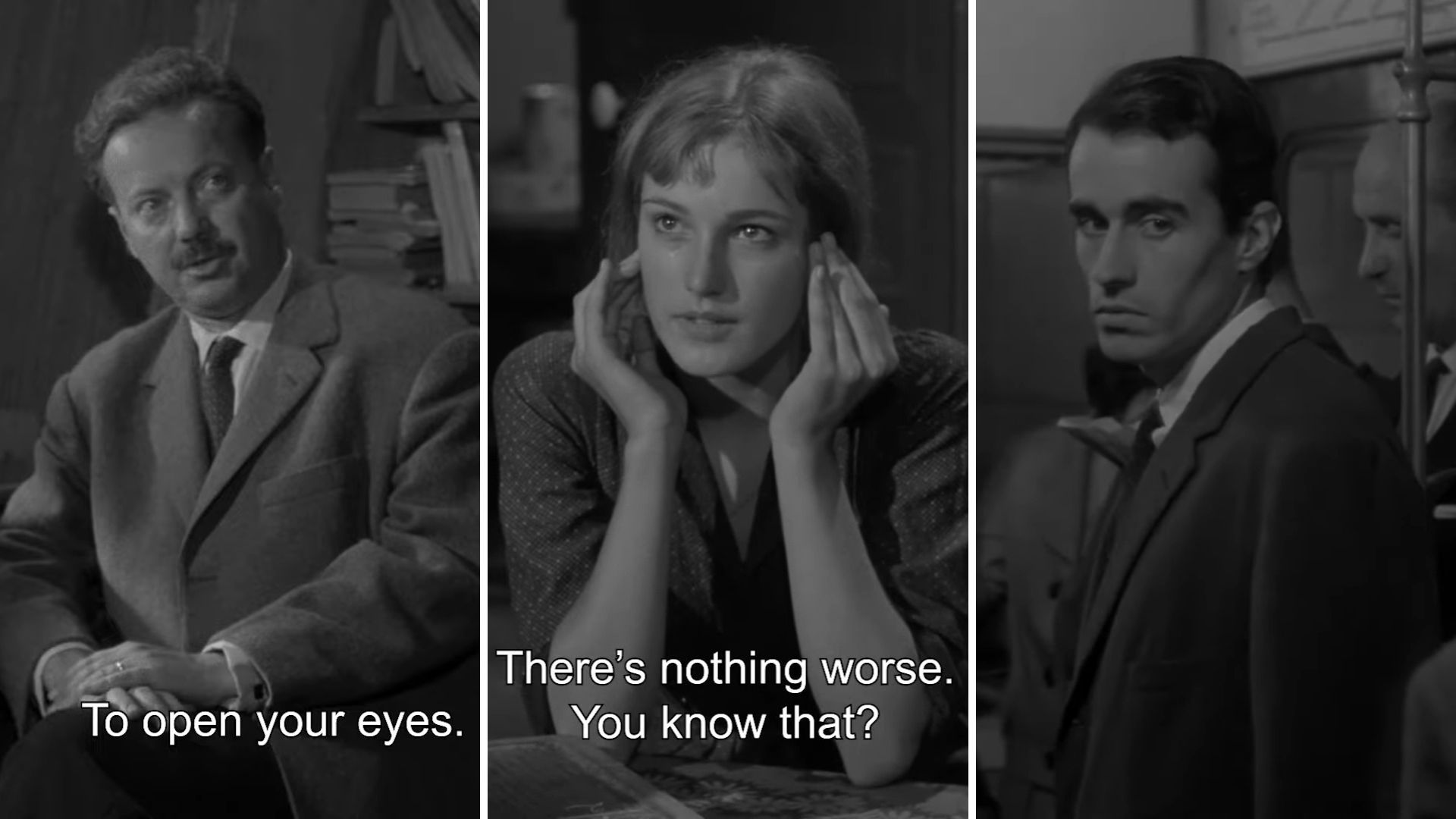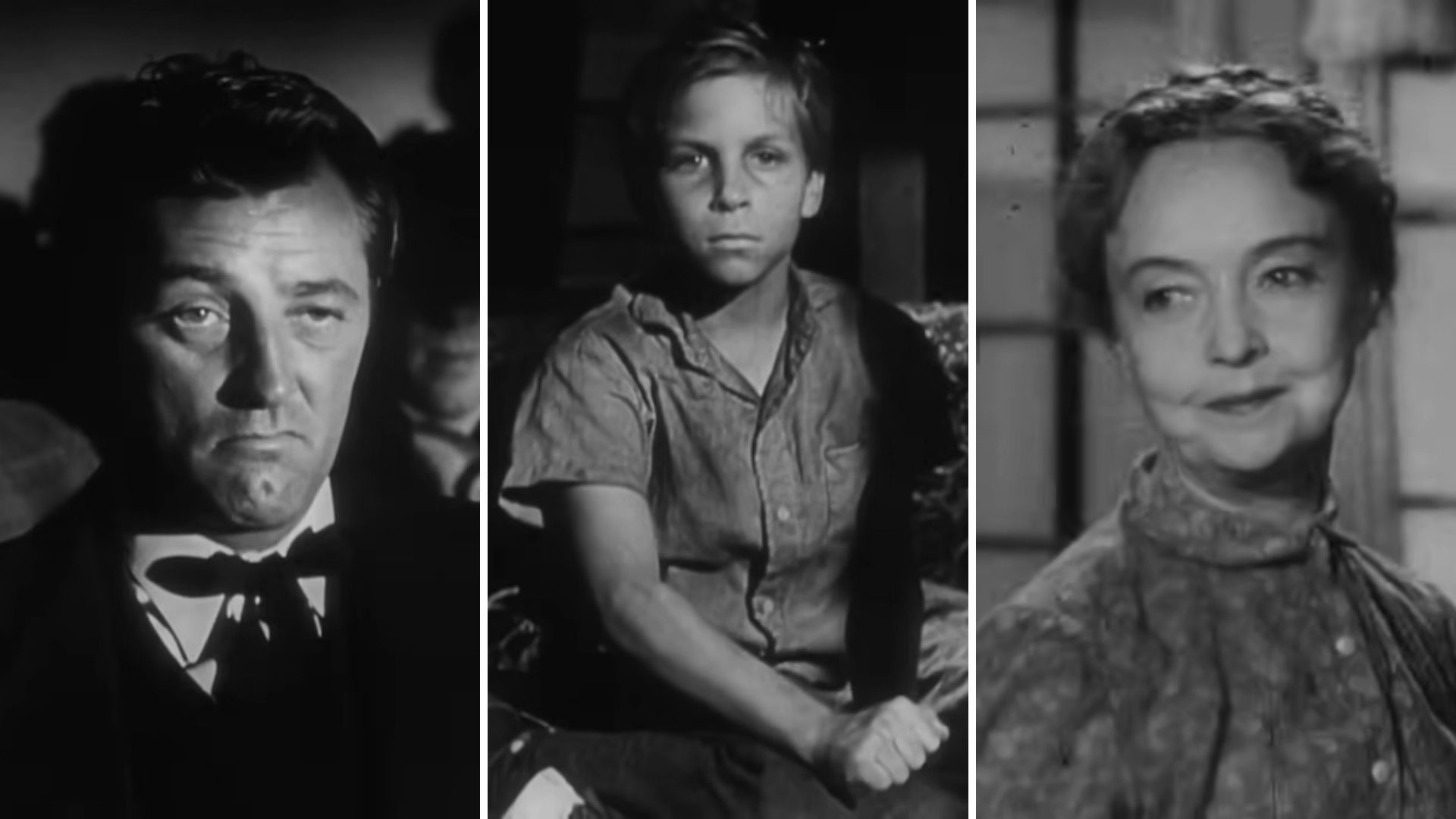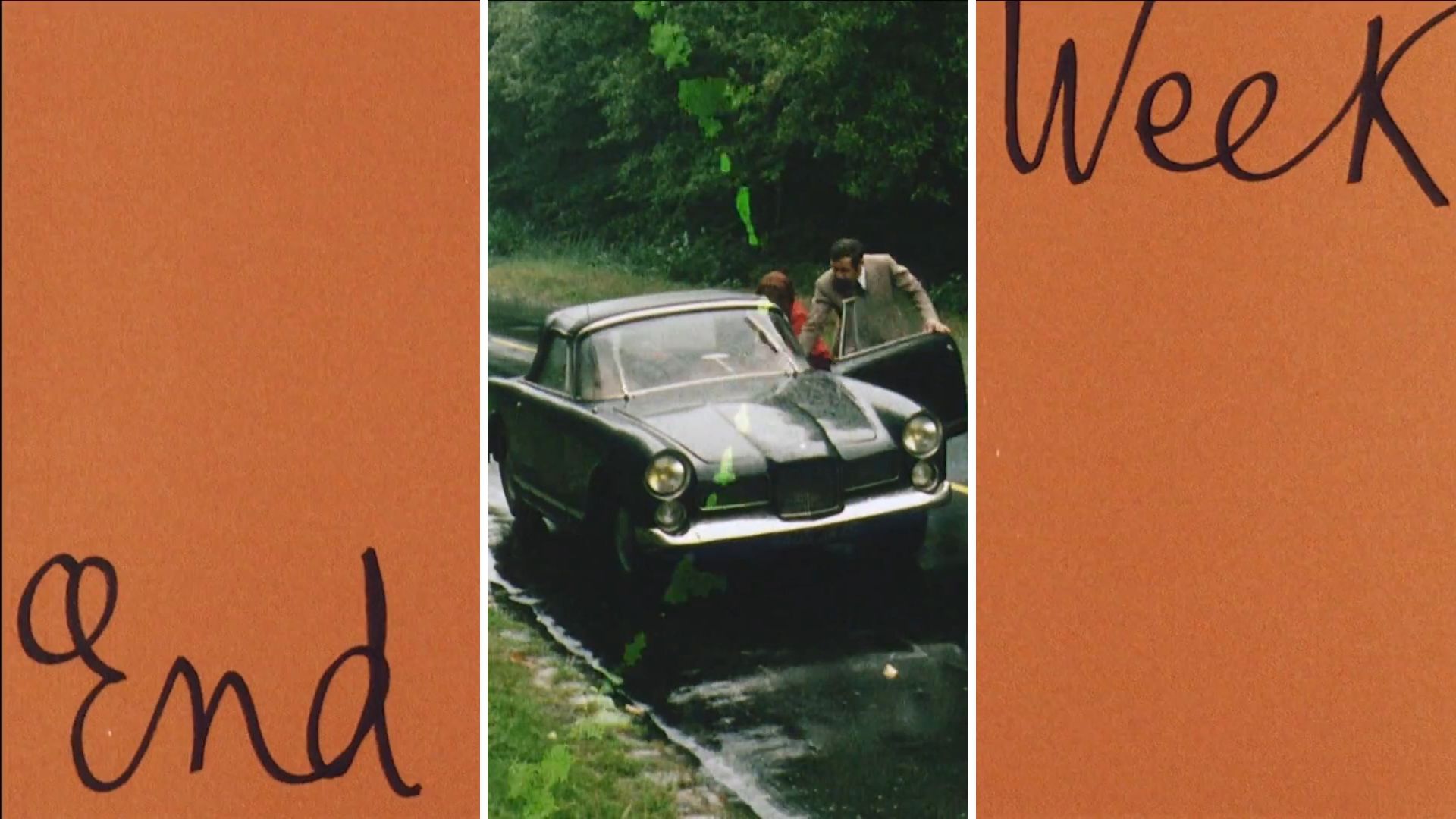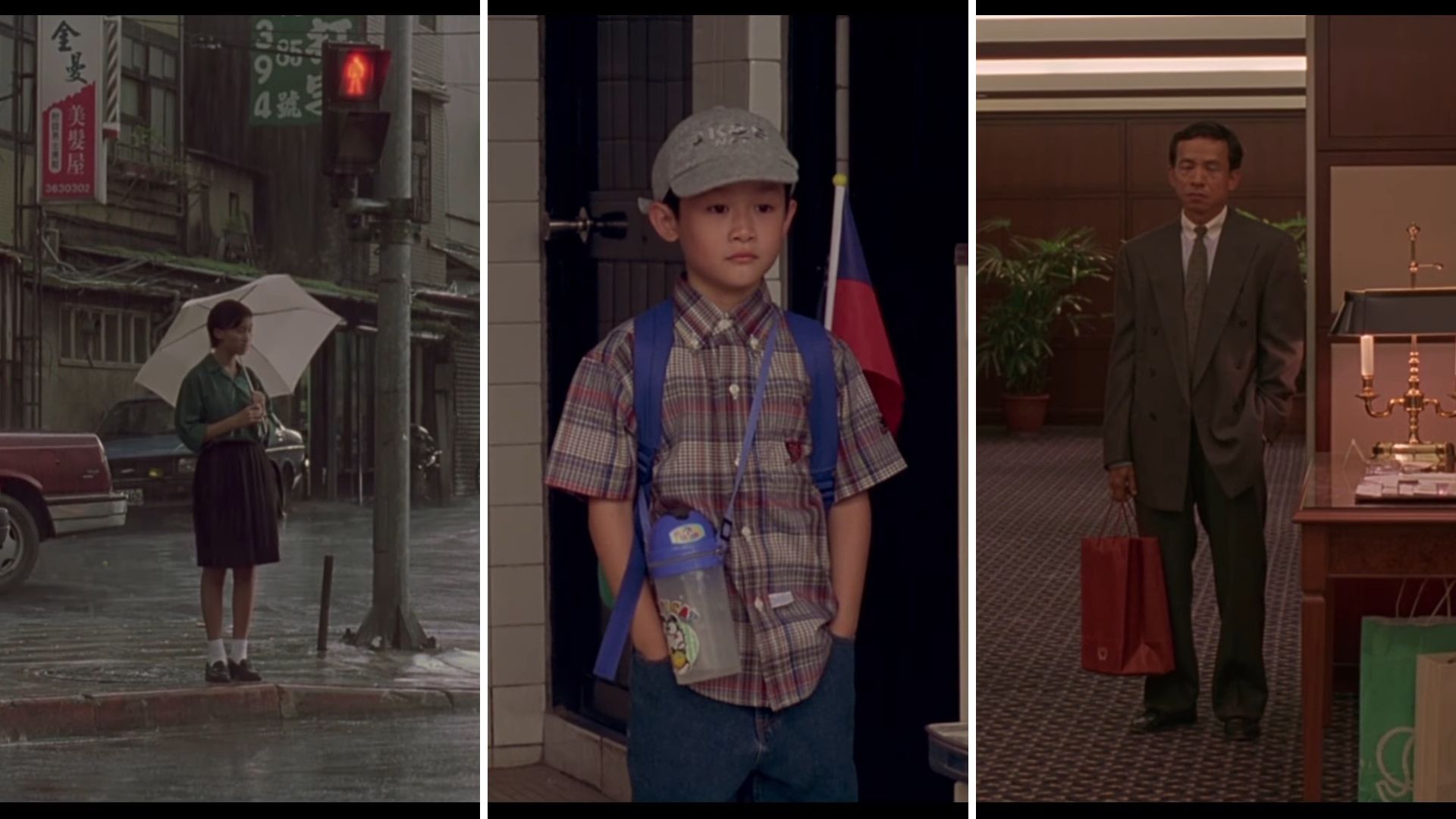
Edward Yang’s 2000 film Yi Yi is an epic, almost three-hour family drama following three generations of one Taiwanese family. Yi Yi opens with a wedding and ends with a funeral, bringing its ideas of life, death, and everything in between full circle.
Yi Yi is a beautiful movie and one that fully captures the essence of family and life. It does so with such banality and no frills. In many ways, Yi Yi feels like a much more epic film than it actually is. There are hints of The Godfather, with its long run time and multi-generational family dynamics. But instead of a crime boss family, we simply witness the existence of ordinary individuals. One family, through multiple generations, dealing with love, regret, loss, and the emergence of new life itself.
A-Di
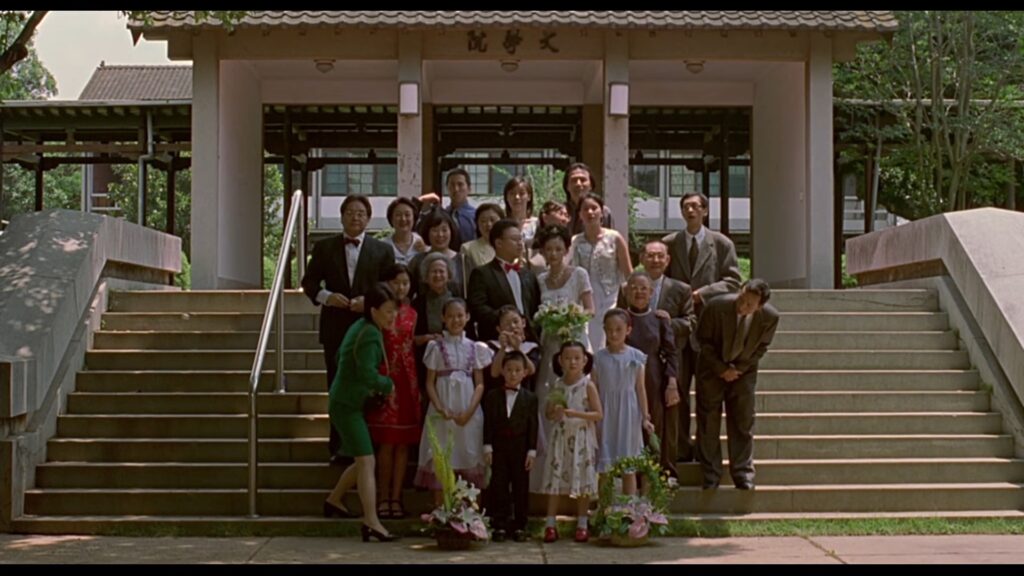
The film begins with the wedding of A-Di. A-Di is a gambler who makes bad decisions and seems to base all of his decisions on luck with little concern for his high-risk actions. He is quickly introduced as the black sheep or screw-up of the family. He’s constantly borrowing money from his wealthier siblings and is quick to get in over his head with bad investments and poor debts. His new bride is pregnant, and rather than learn and grow, A-Di seems incapable of maturing.
After a big fight with his new wife, he ends up at the home of an ex-lover. An ex-lover who later shows up uninvited to A-Di and his wife’s baby shower. Quickly making a scene for everyone in attendance. A-Di’s story is the most straightforward in the film. He screws up, but those that love him, always take him back. He has that ineffable charm that only comes from people like A-Di. Until, his luck eventually runs out and his new bride leaves him, convinced he will never learn from his old mistakes.
NJ
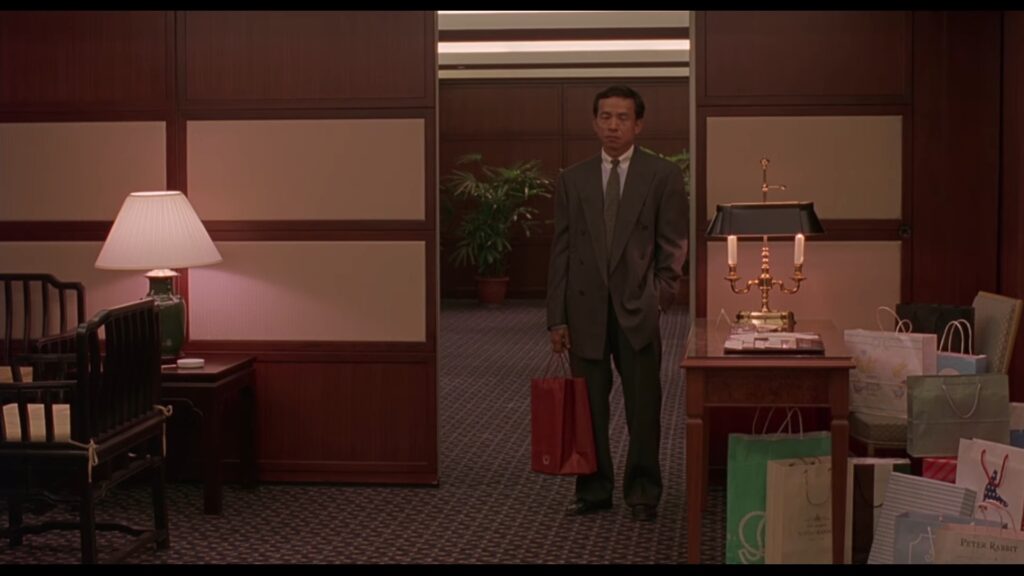
NJ is A-Di’s brother and the proverbial rock of the family. He has two children, a teenage daughter named Ting-Ting, and a young boy named Yang-Yang. His wife, Min-Min, goes through a crisis of faith and becomes enamored with the Buddhist church. His wife’s affections and her retreat into spirituality force NJ to rethink his life and career. When a chance reconnection with an old flame occurs, NJ explores this old relationship. It’s one of the stronger storylines in the film and one that leans into Yi Yi’s themes of different life paths.
NJ is the most serene and thoughtful person in this film. He always remains cool, takes care of his children, and indulges his wife in her spiritual journey. On a business trip to Japan, we get to see NJ’s full arc and many of the film’s best scenes. While on the trip, he reconnects with his first love, Sherry. NJ never fully rekindles his romance with Sherry, but he allows it to simmer for a moment. He holds her hand while they walk across the street, he takes her to a movie, and he expresses his regret at the way things ended between them. But unlike A-Di, NJ is an honorable man. He’s made his decisions in life. He has a wife and children at home who are more important to him than his own happiness.
Ota

A large part of NJ’s trip is the meetings he has with Mr. Ota. A fellow businessman who looks at the world differently than everyone else in his life. Mr Ota is a kind man, one with integrity who values quality over financial success. These interactions between Mr Ota and Sherry are NJ learning about himself. Not just who he is, but who he wants to be.
Ultimately, NJ decides to leave his company and stay with his wife and children. Despite Sherry’s high-paying position and ability to support them, NJ decides to leave this relationship where it’s been. In the past. NJ wants to be more like Mr Ota. He wants to be a man of integrity. Someone his children can look up to. Not someone who focuses on the past and acts on impulse. But in the same vein, when leaving Sherry and telling her it won’t work out between the two, NJ tells her he loves her. He always loved her. This closure comes from NJ realizing how important it is to move forward, but still be able to fondly remember the past. He has a different life, but it’s one he chose. And he won’t be like his brother and throw it away.
Ting Ting
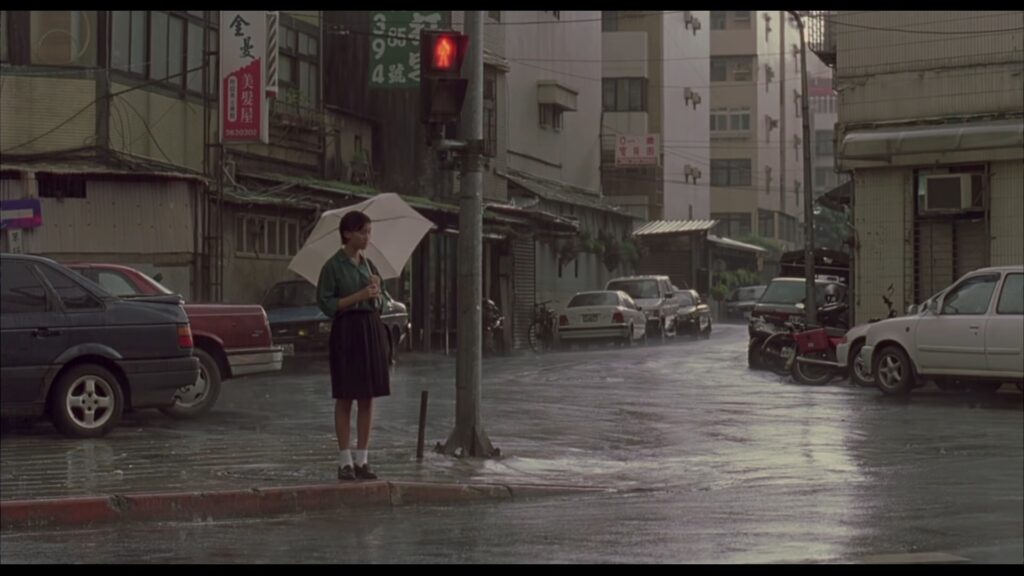
Ting Ting’s story is the most dramatic of the film, but also a fulfilling, idealized version of young love. She gets caught in a love triangle between her new friend Lili and Lili’s boyfriend. All this happens while Ting Ting is suffering from immense guilt over her grandmother’s coma.
Ting Ting’s story is a story of young love, but also one of acceptance. She gets her heart broken by “fatty”, the oddly enough not overweight boyfriend of Lili, and finally, at the end of the film, finds peace. It’s a peace she learns from her father, from watching him come to terms with the struggles of life. It makes us wonder what is in store for A-Di’s child, as they will grow up without the role model of NJ.
Yi Yi
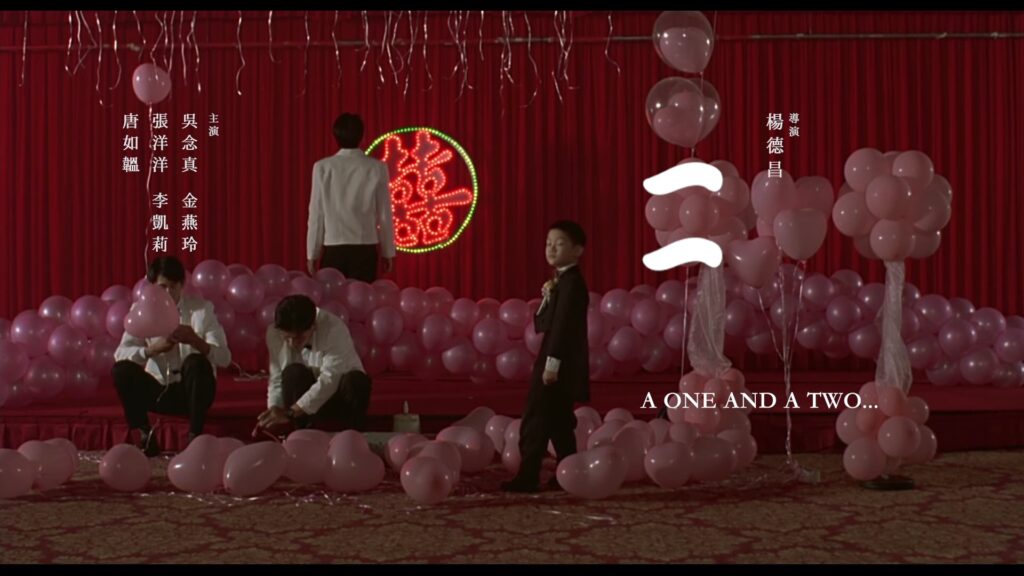
Yi Yi, at its core, is a story about acceptance. Accepting what we can’t change and living with the choices we make. A-Di spends the entire film trying to change his choices. He wants a quick buck, a lucky name for his daughter, and retreats to an old lover the second things become difficult in his marriage. Even when his mother falls ill, he can’t accept it. He doesn’t visit her and instead insists that she will be fine because of good fortune.
The other characters in the film, NJ and Ting Ting, struggle with the same insecurities and problems as A-Di. But they accept their life. All the bad and the good. Rather than work tirelessly to try and change the inevitable, they decide to look forward. They forgive those who’ve wronged them, and they forgive themselves for their naivety. They are all one family, but with many different outcomes.
A lot of films play with these same ideas and themes, but Yi Yi does it so unabashedly well. It doesn’t try to hide these themes behind murder, crime, or salacious affairs. It just tells the story of a family looking forward. Putting the worst behind them and looking for the good. Even when it’s hard and even when it hurts. We only see a brief part of their lives. Just a few weeks. And we can’t sum up an entire life in just a few moments. Yi Yi wants us to know that. Even though we can’t see forward, even though we only get a glimpse of other people’s lives, we can still be empathetic. We can still see people grow and become better.




